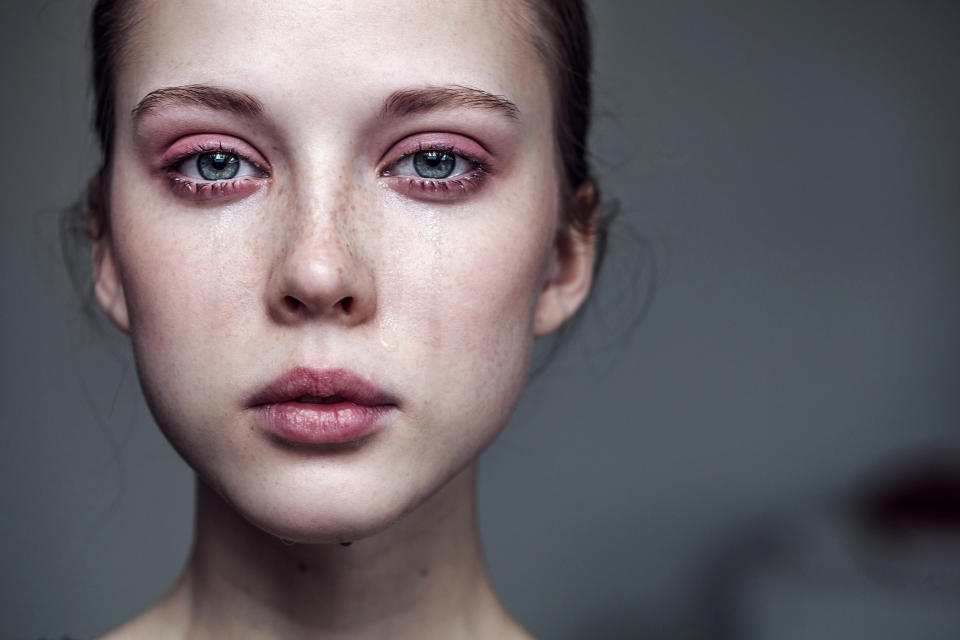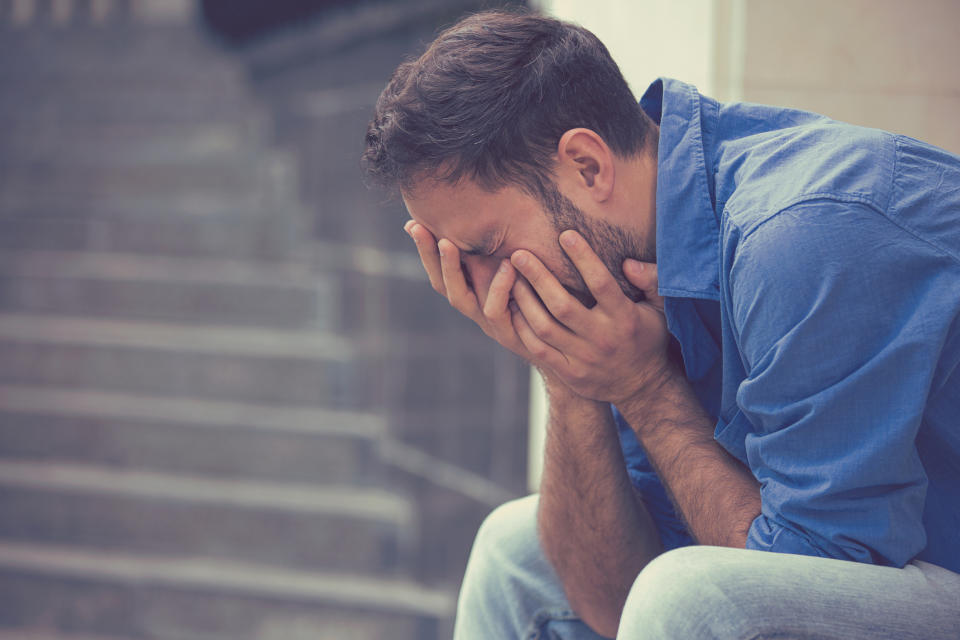Why do we still feel the need to apologise when we cry?

Hands up if you’ve ever followed up a public cry with the word...“sorry”?
That’ll be most of us then.
Whether you’ve had a particularly stressful day at work that has lead to tears of frustration or a heart-to-heart with a friend has brought on an attack of the waterworks, it’s likely that crying in front of someone else will have been followed with a mumbling apology.
Case in point. Sir Michael Palin.
During an emotional TV interview about his late friend Terry Jones, who died on Tuesday aged 77 after a long battle with dementia, Palin broke down in tears before apologising for doing so.
"We were inseparable for many, many years"
Fellow Monty Python star Sir Michael Palin gives an emotional tribute to Terry Jones, who died aged 77, calling him "one of the funniest writer-performers of his generation"https://t.co/54YjmEyVxo pic.twitter.com/9QUPFXxUUK— BBC News (UK) (@BBCNews) January 23, 2020
But why did he feel the need to say sorry?
Crying is a part of normal, everyday life, it’s something we all do, particularly when we’re feeling sad about the death of a friend, why then do we feel we should apologise for it?
According to Natasha Bray, a rapid transformation coach and psychology expert, we need to look back to our childhoods to understand why we feel the need to say sorry for sobbing.
“When we are children and we cry, we may be told to be a 'big girl' or 'big boy' or to stop crying,” she explains.
“We may even be shouted at for crying if our parent or the adults around are struggling to cope with the situation, as no parent is perfect.”
Bray says what confuses things further is that we may also have been praised or treated nicely when we stop crying.
“We are taught from a young age that crying is not allowed, and not crying is rewarded, which means our young mind develops beliefs such as ‘It's not safe to cry’ and ‘crying is weak.’
“We therefore associate crying with being ‘bad’ in some way and those beliefs that we developed as a child still influence us as an adults, which is why we feel the need to apologise for crying.”

Dr Earim Chaudry, Medical Director, Manual believes men in particular feel the need to follow up their tears with an explanatory apology.
“From a very young age, boys are taught that tears are a mark of failure and an inability to manage their own emotions,” he explains.
“Society’s construct of masculinity is comprised of stoicism, control and a dry face. Broadly speaking, men shouldn’t show signs of weakness, fragility and, most importantly, never shed a tear because it doesn’t fit the bill of what we deem as ‘manly’.”
The main problem, according to Dr Chaudry, is that crying is still viewed as a form of weakness, particularly by the males amongst us.
“Men have been taught that crying means you've let your emotional guard down and you've shown that you too have weaknesses,” he says.
“When we hear the word 'weakness', we associate that with failure and an endless list of negative connotations.”
But actually crying is a sign of another personality trait.
“Funnily enough, tears also show others that we're vulnerable, and vulnerability is critical to human connection. So the very thing that enables us to bond with others and expresses true, unfiltered vulnerability, is shamed out of men from a young age.”
Dr Stephanie Cook is a psychology lecturer, De Montfort University Leicester believes another reason we apologise when we cry is because it goes against social norms.

“It’s to do with not wanting to make the person we’re with feel uncomfortable,” she explains.
“Putting ourselves in their shoes, we know that they are expected to regulate/support our crying behaviour, and therefore we feel the need to apologise for the inconvenience.”
But there are so many benefits to a good blub.
“Crying is important for us to release our emotions,” explains Bray. “Bottling up emotions leads to numbing behaviours such as emotional eating, over use of alcohol or even overspending and can have a negative impact on our emotional health.
“Also, we need to show future generations that it's ok to feel and release emotions through crying and break the cycle that has been passed down to us.”
And of course, we should never apologise for something that comes natural to us.
“You wouldn't apologise to someone for being happy, disappointed or excited, so you shouldn't feel a need to apologise for your sadness either,” adds Dr Chaudry.
“Crying is powerful. It allows us to feel, release, heal, and move forward.”
So next time the waterworks accidentally switch on, please don’t apologise for it.
Crying is good. Own those tears.
Got a story tip or just want to get in touch? Email us at lifestyle.tips@verizonmedia.com.

 Yahoo Lifestyle
Yahoo Lifestyle 


